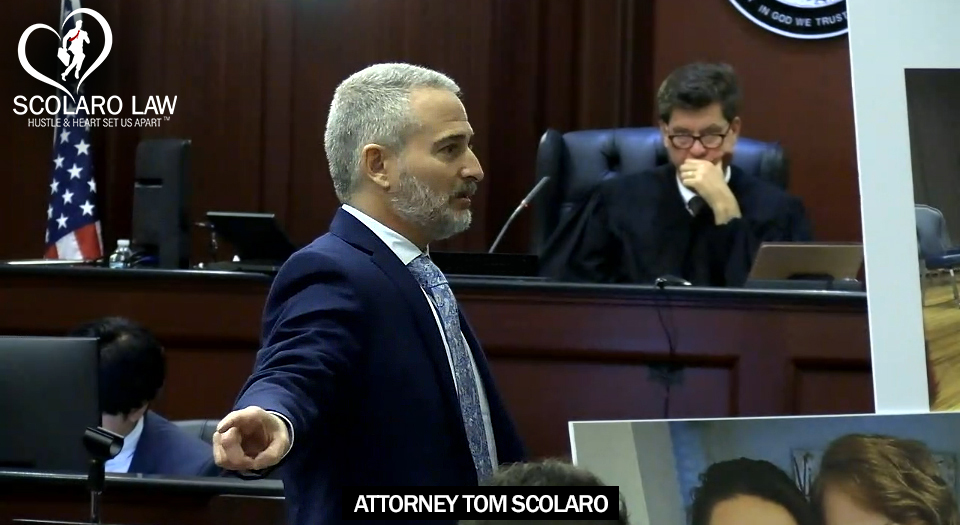
Get Started with a Free Consultation
If you were injured in an incident in Florida, contact us by filling out this form.
"*" indicates required fields
Changes to Florida Rules of Civil Procedure Effective January 1, 2025: A Comprehensive Overview
December 11, 2024
Several significant changes to the Florida Rules of Civil Procedure will take effect on January 1, 2025. These amendments are intended to streamline civil case administration, better ensure timely judicial decisions, and generally improve efficiency in civil litigation. This article highlights the key changes, focusing on any alterations to timeframes within the rules and emphasizing the practical implications for attorneys practicing in Florida.

Case Management Revolution: Rules 1.200 and 1.201
The most sweeping changes are found in Rules 1.200 and 1.201, which center on case management. The Florida Supreme Court completely rewrote Rule 1.200 to require assignment of all civil actions into one of three categories: complex, general, or streamlined. These tracks will have specific case management requirements, and judges are mandated to issue case management orders with strict, enforceable deadlines. This marks a significant departure from the prior system, where deadlines were often treated as flexible.
Key Features of the New Case Management System:
- Mandatory Track Assignment: All cases will be assigned to one of the three tracks within 120 days of the complaint being filed. This assignment is based on the complexity of the case and the amount of judicial attention required, not the monetary value. The “streamlined” track is for cases with limited discovery needs, well-established legal issues, and an anticipated trial length of no more than three days. The “general” track encompasses cases that don’t meet the criteria for either streamlined or complex. Complex cases continue to proceed under Rule 1.201. A party can request a change in track assignment, or the court can direct a change on its own motion.
- Strict Deadlines: Case management orders issued by the court will contain specific deadlines for various stages of litigation, including:
Service of complaints
Adding new parties
Completion of discovery
Resolution of motions
Alternative dispute resolution - Enforcement of Deadlines: The deadlines established in case management orders “must be strictly enforced unless changed by court order”. This signifies a stricter approach compared to the previous system, where extensions were more readily granted.
- Limited Extensions: Parties can request to extend deadlines, but only by court order, and the extension cannot affect other deadlines in the case management order. The motion must specify the basis for the extension, when the need became known, whether it’s opposed, the requested date for the new deadline or trial period, and the actions the moving party will take to meet the new deadline. The old system allowed for more informal agreements between parties to extend deadlines.
- New Trial Period: If a trial doesn’t occur within the assigned trial period, the court must issue an order setting a new trial period as soon as practicable.
Rule 1.201, Complex Litigation, has also undergone revisions to align with the new case management framework:
- Hearing on Complex Designation: The court has the discretion to hold a hearing to determine if a case should be designated as complex.
- Notification of Unnecessary Conferences: Parties are obligated to promptly inform the court if a scheduled case management conference or hearing is no longer necessary. This is meant to avoid wasting the court’s time and resources.
- Continuances: Motions for trial continuances in complex cases will now be governed by Rule 1.460, which has been significantly amended, as detailed below.

Practical Implications for Attorneys:
- Increased Diligence with Deadlines: The emphasis on strict adherence to deadlines necessitates attorneys to be exceptionally organized and diligent in managing their cases. Procrastination and informal deadline extensions will no longer be tolerated.
- Early Case Assessment: Attorneys will need to quickly assess the complexity of a case to ensure it’s placed on the appropriate track and to anticipate the deadlines that will apply.
- Proactive Case Management: A proactive approach to case management is essential to meet the deadlines and avoid potential sanctions for non-compliance. This includes promptly filing motions for deadline extensions if necessary and diligently working towards trial preparation.
Impact on Trial Setting: Rule 1.440
Rule 1.440, concerning setting cases for trial, has been amended to further expedite litigation. The most notable change is the elimination of the “at issue” requirement. This means the court can schedule a trial even if the pleadings are not closed, potentially leading to trials being scheduled much earlier than under the previous system.
Additional Changes to Trial Setting:
- Trial Period Setting: For cases governed by Rule 1.200 (streamlined and general cases), the court must issue an order fixing the trial period no later than 45 days before the projected trial period outlined in the case management order. For cases not governed by Rule 1.200 or 1.201, the court must issue an order fixing the trial period upon finding that the action is ready for trial.
- Trial Date Flexibility: The court can, upon motion by a party or on its own initiative, set a trial date earlier than the projected trial period in the case management order.
Practical Implications for Attorneys:
- Accelerated Trial Preparation: The removal of the “at issue” requirement and the possibility of earlier trial dates require attorneys to be prepared for trial much sooner than before. This may necessitate early engagement of experts, completion of discovery, and preparation of trial strategies.
- Strategic Considerations: Attorneys will need to carefully consider the implications of the new trial setting rules when planning their litigation strategy. For example, they may need to be more aggressive in pursuing early discovery to be ready for a potentially earlier trial date.
Changes to Motions for Summary Judgment: Rule 1.510
The amendments to Rule 1.510, governing motions for summary judgment, directly impact response timeframes. Previously, the party opposing summary judgment had to file a response 20 days before the hearing. This timeframe has been significantly altered.
New Response Timeframe
The amended rule mandates that the non-moving party must now respond within 60 days after service of the motion for summary judgment, regardless of the hearing date. This eliminates any reference to a hearing in the rule, aligning it more closely with the federal summary judgment standard. The moving party must serve the motion in accordance with the deadline specified in the case management order. No specific deadline is set for replies, maintaining consistency with the prior rule.
Application to Pending Cases
The new rule applies to all motions for summary judgment adjudicated on or after January 1, 2025. If a motion for summary judgment is filed before January 1, 2025, but the hearing is set for a date after January 1 and within 60 days of filing, practitioners are advised to reschedule the hearing if no response has been submitted. This ensures compliance with the new 60-day response period, avoiding procedural complications.
Burden of Proof and Directed Verdict Standard
The summary judgment standard remains aligned with the directed verdict standard. The burden lies with the party that has the burden of proof at trial. A party moving for summary judgment can either present evidence disproving a fact essential to the non-moving party’s claim or point out the absence of evidence necessary to support the claim. The non-moving party must then come forward with evidence sufficient to establish a genuine issue of material fact for trial. As articulated in Wald v. Grainger, summary judgment is appropriate when, considering all evidence and inferences in the light most favorable to the non-moving party, no reasonable jury could find in their favor.
Material Facts and Weighing the Evidence
Courts can now weigh the plausibility of inferences relied upon by the non-moving party, provided such evaluation aligns with what a reasonable jury might do. A mere “scintilla of evidence” or the “slightest doubt” is insufficient to create a disputed material fact. The evidence must be robust enough to allow a reasonable jury to rule in favor of the non-moving party.
Completion of Discovery and Judicial Findings
While the amended rule does not require all discovery to be completed before moving for summary judgment, adequate time for discovery remains a prerequisite. Judges are also required to make explicit findings when granting or denying summary judgment, ensuring transparency and facilitating appellate review.
Federal Standard and Case Law
The revised rule explicitly states that it must be construed and applied in accordance with the federal summary judgment standard. This change enables Florida practitioners to rely on decades of federal case law, such as the Celotex progeny, for guidance in their arguments and case preparation.
Practical Implications for Attorneys
The changes to Rule 1.510 necessitate a proactive approach to summary judgment preparation. Attorneys must adjust their timelines to accommodate the 60-day response deadline, ensuring that discovery is sufficiently advanced to support their arguments. Failure to adhere to the updated procedural requirements could result in delays, adverse rulings, or lost opportunities to effectively argue their case.
- Early Response Preparation: Attorneys must promptly prepare their responses to motions for summary judgment upon receiving the motion. The revised rule eliminates the option to wait for a hearing to be scheduled, requiring practitioners to act immediately to meet the 60-day deadline.
- Adequate Discovery Timing: Given the rule’s emphasis on responding within 60 days, attorneys need to ensure that discovery is well underway or complete in time to support their arguments effectively. Coordination with clients and experts early in the litigation process will be critical.
- Utilization of Rule 1.510(d): If unable to present facts essential to justify their opposition within the 60-day timeframe, attorneys representing non-moving parties may need to rely on Rule 1.510(d) more frequently. This rule allows for securing extensions under certain circumstances, provided the request is timely and substantiated.
- Alignment with Federal Practices: Florida practitioners can now draw upon extensive federal case law for guidance in crafting arguments, further supporting their summary judgment strategies. Leveraging this body of precedent will enhance the persuasiveness of motions and responses.
Overhaul of Continuances: Rule 1.460
Rule 1.460, dealing with continuances, has undergone a complete rewrite, reflecting the court’s emphasis on expeditious case resolution. The rule’s title has been changed to “Motions to Continue Trial,” emphasizing that continuances are no longer a routine occurrence.

Key Changes to Rule 1.460:
- Disfavored Status: Continuances are now expressly “disfavored” and will only be granted in “rare circumstances” for “good cause” shown. This marks a significant shift from the prior practice where continuances were more readily granted.
- Prompt Filing Requirement: The motion must be filed “promptly” after the “discovery of good cause” necessitating a continuance.
- Signature Requirement: The motion must be signed by the party seeking the continuance, not their attorney. This places responsibility directly on the party.
- Required Content of Motion: The motion must include specific information, such as:
The basis for the continuance and when the need for it became apparent
Whether the motion is opposed
The actions the movant will take to be ready for trial by a proposed new date
The proposed new trial date - Court’s Duty to Address Delays: The court has a duty to address any issues causing delay. This may include requiring depositions to preserve testimony, resolving conflicts with other trials, or allowing remote appearances.
- Potential Sanctions: If a continuance is granted based on the “dilatory conduct” of a party or attorney, the court may impose sanctions.
- Order Requirements: The court must state the basis for granting or denying a continuance, either on the record or in a written order. Orders granting continuances must either set a new trial date or set a case management conference and must indicate what further activity will or will not be permitted.
Practical Implications for Attorneys:
- Heightened Burden to Justify Continuances: Attorneys will face a significantly higher burden to justify a continuance. Demonstrating “good cause” and the rarity of the circumstances will be crucial.
- Early Identification of Issues: Attorneys must be diligent in identifying potential issues that may necessitate a continuance and address them promptly to avoid sanctions for dilatory conduct. This requires proactive case management and open communication with clients.
- Thorough Motion Preparation: Motions to continue trial must be meticulously prepared, including all the required elements outlined in the rule. The courts will scrutinize these motions carefully, given the disfavored status of continuances.
Conferral Before Filing Motions: New Rule 1.202
A significant new addition to the rules is Rule 1.202, which mandates a conferral requirement before the filing of most motions. This rule aims to encourage collaboration between parties and potentially resolve disputes without court intervention.
Applicability and Exceptions:
The rule applies to most motions, but there are specific exceptions. Parties are not required to confer before filing:
- Motions for injunctive relief
- Motions for judgment on the pleadings
- Motions for summary judgment
- Motions to dismiss or to permit maintenance of a class action
- Motions to dismiss for failure to state a claim upon which relief can be granted
- Motions to involuntarily dismiss an action
Duty to Confer and Certificate of Conferral:
The moving party has the duty to initiate a good-faith conference with the opposing party to attempt to resolve the issues raised in the motion before filing the motion. The moving party must file a Certificate of Conferral with the motion, certifying that the conference took place. The certificate should include:
- The date and means of the conference
- Whether the parties agreed on the relief sought
- The efforts made to reach an agreement
If the opposing party was unavailable for a conference, the moving party must detail all efforts to communicate before filing the motion.

Practical Implications for Attorneys:
- Mandatory Conferral Process: Attorneys must incorporate the conferral process into their motion practice. This may require adjusting internal procedures to ensure sufficient time for these conferences before filing deadlines.
- Good Faith Effort: The rule mandates a good-faith effort to resolve the issues. Simply going through the motions of a conference without genuine attempts to reach a resolution will not suffice.
- Documentation: Attorneys should meticulously document their conferral efforts, including the date, time, method of communication, and substance of the discussion. This documentation will be crucial if the opposing party challenges the sufficiency of the conferral.
Proportionality in Discovery: Rule 1.280
The amended rule states that parties may obtain discovery regarding any nonprivileged matter that is relevant to any party’s claim or defense and “proportional to the needs of the case”. This aligns Florida’s discovery rules more closely with Federal Rule of Civil Procedure 26(b)(1).
Factors to Determine Proportionality
The court will consider several factors to assess proportionality, including:
- The importance of the issues at stake in the action
- The amount in controversy
- The parties’ relative access to relevant information
- The parties’ resources
- The importance of the discovery in resolving the issues
- Whether the burden or expense of the proposed discovery outweighs its likely benefit
Practical Implications for Attorneys:
- Tailored Discovery Requests: Attorneys will need to carefully tailor their discovery requests to ensure they are proportional to the needs of the case. Overly broad or burdensome requests may be subject to objections based on proportionality.
- Early Case Assessment: A thorough early case assessment will be essential to determine the appropriate scope of discovery and anticipate potential proportionality issues.
- Strategic Use of Proportionality: Attorneys can strategically use the proportionality concept to limit burdensome discovery requests from the opposing party.
Initial Discovery Disclosures: Rule 1.280
The amendments to Rule 1.280 also introduce a requirement for initial discovery disclosures, similar to those mandated under the Federal Rules of Civil Procedure.
Timeframe for Disclosures:
Parties must provide initial disclosures within 60 days after service of the complaint or joinder, unless a different time is set by court order. This applies to all cases except those specifically exempted under Rule 1.280(a)(2).
Required Disclosures:
Initial disclosures must include, at a minimum:
- The names and contact information of individuals likely to have discoverable information, along with the subjects of that information that the disclosing party may use to support its claims or defenses
- A copy or description of all documents, electronically stored information, or tangible things that the disclosing party has in its possession, custody, or control – or, if not in the disclosing party’s possession, custody, or control, a description by category and location of such information – that it may use to support its claims or defenses
- A computation for each category of damages claimed by the disclosing party and a copy of the documents or other evidentiary material on which each computation is based, unless those documents are privileged or otherwise protected from disclosure
- A copy of any insurance policy or agreement that may satisfy all or part of a possible judgment in the action
Practical Implications for Attorneys:
- Early Preparation and Disclosure: Attorneys will need to be prepared to gather and disclose the required information within the 60-day timeframe. This will necessitate early client communication and case assessment to ensure compliance.
- Strategic Advantages: The initial disclosures can provide strategic advantages by allowing attorneys to obtain key information early in the case, potentially shaping discovery strategy and facilitating early settlement negotiations.
Duty to Supplement Discovery: Rule 1.280
A significant new provision, Rule 1.280(f), imposes a continuing duty to supplement discovery throughout the course of the litigation.
Triggering the Duty:
Parties are required to supplement or correct their disclosures or discovery responses in a timely manner if they learn that:
- A response was materially incomplete
- A response was incorrect
Ongoing Obligation:
This duty to supplement is ongoing, meaning parties cannot simply rely on their initial responses and must actively update them as new information emerges. This includes information learned through their own investigation and information obtained from the opposing party.
Practical Implications for Attorneys:
- Diligent Case Monitoring: Attorneys must diligently monitor their cases and be prepared to supplement discovery as new information becomes available. This requires maintaining organized case files and actively communicating with clients to ensure awareness of any new developments.
- Potential Pitfalls: Failure to supplement discovery can have serious consequences, including potential sanctions and the exclusion of evidence at trial.
Amendment to Pleading Requirements: Rule 1.110
While not directly impacting timeframes, a significant amendment to Rule 1.110(d) deserves mention, as it changes the requirements for asserting affirmative defenses.
Ultimate Facts Requirement:
The amended rule requires parties asserting affirmative defenses in their responsive pleading to provide a “short, plain statement of the ultimate facts” that support each defense.
Rationale for Change:
This amendment is intended to prevent parties from simply listing generic affirmative defenses without any factual basis. It forces parties to engage with the factual allegations early in the litigation.
Practical Implications for Attorneys:
- Factual Investigation: Attorneys for defendants must conduct a sufficient factual investigation early in the case to identify the ultimate facts supporting their affirmative defenses.
- Careful Pleading: Affirmative defenses must be carefully pleaded with supporting facts to avoid motions to strike from the opposing party.
- Potential Impact on Case Strategy: This amendment may lead to more focused and efficient discovery, as parties will have a better understanding of the factual disputes at the outset of the case.
Conclusion
The changes to the Florida Rules of Civil Procedure taking effect on January 1, 2025, represent a significant shift in the landscape of civil litigation in Florida. The overarching theme is to expedite case resolution and enhance efficiency. Attorneys practicing in Florida must be aware of these changes and adapt their practices accordingly. The courts will also face the challenge of effectively enforcing these new rules. The ultimate goal is to create a more streamlined and just system for all parties involved.

This document is intended to serve as a helpful guide for practitioners to familiarize themselves with key changes to the Florida Rules of Civil Procedure effective January 1, 2025. However, it is not exhaustive, nor should it be relied upon as a substitute for a thorough review of the new rules and applicable case law. Practitioners are strongly encouraged to consult the full text of the amended rules and conduct their own research to ensure compliance and a complete understanding of the changes. Always verify the specific requirements and deadlines that apply to your case, as variations in court interpretation and case-specific factors may influence how these rules are applied.

